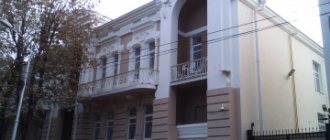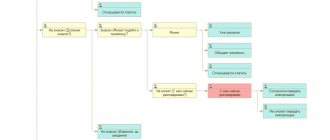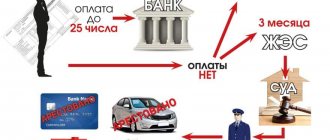Utility subscriber
The leased property is the property of the lessor. That is, it is he who acts as a subscriber to public services. This conclusion can be drawn from the provisions of Article 608, paragraph 2 of Article 539 and Article 548 of the Civil Code of the Russian Federation.
At the same time, with regard to the supply of electricity, the legislation does not prohibit the energy supply organization from supplying energy not only to the subscriber (lessor), but also to other organizations dependent on it (for example, tenants). That is, the subscriber (lessor), with the consent of the energy supply organization, has the right to transfer the energy received by him through the connected network to the sub-subscriber (tenant). And the sub-subscriber (tenant) must be able to receive energy through special equipment, as well as connect to the power grid of the subscriber (lessor).
This procedure follows from Article 545 of the Civil Code of the Russian Federation. In general, it also applies to relations related to the supply of other public services (heat, gas, water, etc.) (Article 548 of the Civil Code of the Russian Federation).
The Civil Code of the Russian Federation does not establish any other requirements other than those indicated above. This allows the tenant to choose between various ways of formalizing relations for receiving utilities and their subsequent payment.
Obligation to pay for the maintenance and repair of visual equipment in the apartment building
Management organizations issue invoices to the owners of non-residential premises for the maintenance and repair of the common property of apartment buildings. The owners of such premises refuse to pay the received payment documents, arguing that they do not have a contractual relationship with the management company.
By virtue of clause 2 of Art. 8.1 of the Civil Code of the Russian Federation, the right of ownership of property subject to state registration arises, changes and terminates from the moment the corresponding entry is made in the state register, unless otherwise provided by law.
The owner bears the burden of maintaining the property he owns (Article 210 of the Civil Code of the Russian Federation).
Common property in an apartment building belongs to the owners of the premises on the right of common shared ownership, in accordance with clause 1, part 1, art. 36 Housing Code of the Russian Federation. The common property of apartment buildings includes premises that are not parts of apartments and are intended to serve more than one room in such a building:
- inter-apartment landings;
- stairs;
- elevators;
- elevator and other shafts;
- corridors;
- technical floors;
- attics;
- basements with utility lines;
- other equipment serving more than one room.
Each participant in common shared ownership is obliged, in proportion to his share, to participate in the payment of taxes, fees and other payments on common property, as well as in the costs of its maintenance and preservation (Article 249 of the Civil Code of the Russian Federation).
Owners of premises in apartment buildings bear the burden of expenses for maintaining common property in an apartment building (Part 1 of Article 39 of the Housing Code of the Russian Federation).
In accordance with Part 2 of Art. 154 of the Housing Code of the Russian Federation, payment for residential premises and utilities of the owner of the premises in an apartment building includes payment for services and work on managing such a house, for the maintenance and ongoing repairs of common property in an apartment building, for utility resources consumed during the use and maintenance of public buildings in an apartment building.
The owner's obligation to pay maintenance and repair costs is not conditioned by the existence of a contractual relationship with the management organization. This conclusion can be found in paragraph 24 of the Review of judicial practice of application of the legislation of the Russian Federation on the contract system in the field of procurement of goods, works, services to meet state and municipal needs, approved by the Presidium of the Supreme Court of the Russian Federation on June 28, 2017.
By virtue of Part 2.3 of Art. 161 of the Housing Code of the Russian Federation and clause 10 of the Decree of the Government of the Russian Federation of August 13, 2006 No. 491, the performance of work and provision of services for the maintenance of the common property of an apartment building is mandatory for the management organization in accordance with the legislation of the Russian Federation. The MA cannot refuse to perform such work and provide services even if a state or municipal contract has not been concluded.
The fact that the owner of non-residential premises did not take action to conclude a contract to fulfill the obligation to bear expenses for common property does not relieve him of the obligation to pay the appropriate fee.
Thus, the owner of a non-residential premises located in an apartment building, by virtue of the direct instructions of the law, is obliged to bear the costs of maintaining the common property, unless otherwise provided by law or contract.
Debt collection in the housing and communal services sector (part I)
133150
Calculation methods
Payments for utility services can be organized in the following ways:
- the tenant pays the landlord utilities as part of the rent;
- the tenant, in a separate payment (on a separate invoice), compensates the landlord for the cost of utilities;
- the tenant enters into an intermediary agreement with the landlord for the purchase of utilities;
- The tenant directly enters into an agreement with the utility services for the supply of electricity. This payment option is not applicable for water supply payment services.
Debt collection from owners of non-residential premises
Owners of non-residential premises in apartment buildings are required to pay for housing and communal services according to the same rules as owners of residential premises. The management organization may require the owner of non-residential premises to promptly pay fees for the maintenance and repair of the common property of an apartment building.
If the owner of a non-residential premises refuses to pay the management organization for the maintenance and repair of common property, you should first try to resolve the issue amicably and explain to the owner of the non-residential premises why he is obligated to pay for the maintenance and repairs of the residential premises: send debt payments, letters or try to conclude an agreement about debt repayment.
If the owner refuses to pay the bills, the management company should proceed to pre-trial debt collection: before filing an application to the court, the debtor must submit a claim demanding payment of the debt on a voluntary basis. According to Part 5 of Art. 4 of the Arbitration Procedure Code of the Russian Federation, the debtor is obliged to respond to such a claim within 30 calendar days.
If the debtor refuses or does not respond to the claim at all, the management organization may file a claim in court. The Arbitration Court considers such applications. But it happens that disputes reach the Supreme Court of the Russian Federation.
An example of such a dispute is given in the ruling of the Supreme Court of the Russian Federation dated November 28, 2017 in case No. 305-ES17-10430. In it, the court indicated that the management organization can recover the debt for the maintenance and repair of common property from the owner of non-residential premises.
How to register partial repayment of debt for housing and communal services
74511
Payment for services as part of the rent
In this case, the tenant compensates the cost of consumed utilities to the landlord as part of the rent. The possibility of using this option follows from the legislation governing rental relations.
Thus, in accordance with paragraph 2 of Article 616 of the Civil Code of the Russian Federation, the tenant must bear the costs of maintaining the leased property, unless otherwise provided by law or agreement. At the same time, the tenant is not obliged to pay utility bills directly to their suppliers. In this situation, the landlord, who is a subscriber under an agreement with public utilities, has the right to allow the tenant (subsubscriber) to use its networks. For this, the tenant must compensate the landlord not only for the rent, but also for the cost of the utilities he consumes.
The specified agreement between the lessor and the lessee is a method of forming the cost of rent and cannot be qualified as a separate agreement (see, for example, paragraph 22 of the information letter of the Presidium of the Supreme Arbitration Court of the Russian Federation dated January 11, 2002 No. 66).
There are two ways to include the amount of compensation for utilities in the rent:
- The amount of rent, taking into account utility costs, is determined in a fixed form. The cost of utilities is not specified separately in the contract;
- the amount of rent in the contract consists of two parts: a fixed payment (the rent itself) and a variable payment (utility costs consumed by the tenant in the billing period).
Using the first method may be unprofitable in some cases. The fact is that the actual cost of utilities tends to change. Such changes may occur several times during the year. However, in the general case, the parties can take them into account in the agreement and, accordingly, adjust the amount of rent only once a year (clause 3 of Article 614 of the Civil Code of the Russian Federation). In addition, the amount of payment for some services directly depends on the size of their consumption, and it is not always possible to predict in advance how much, for example, electricity a tenant will consume. Thus, a situation may arise when the utilities actually consumed by the tenant are not covered by the amount of utility payments included in the rent.
When using the second method, the variable part, that is, the cost of utilities, can change every month depending on changes in tariffs or the amount of services consumed. At the same time, the provisions of paragraph 3 of Article 614 of the Civil Code of the Russian Federation regarding the inadmissibility of rent revision more than once a year are not violated. The condition on the amount of rent should remain unchanged, establishing the method of its calculation, and not the amount (clause 11 of the information letter of the Presidium of the Supreme Arbitration Court of the Russian Federation dated January 11, 2002 No. 66).
The total amount of utilities and energy supplies is determined by actual consumption based on invoices issued by suppliers. The share of expenses compensated by the tenant under the lease agreement (variable part of the rent) can be determined in the following ways:
- by the share of premises occupied by the tenant;
- according to the readings of individual meters;
- based on the power of the equipment used by the tenant and its operating time.
Set out the calculation method in the lease agreement (Clause 1, Article 615 of the Civil Code of the Russian Federation).
When compensation for utility costs is included in rental payments, primary documents for utility payments are not drawn up separately. It is enough for the landlord to complete the lease documents and attach copies of utility documents (invoices, calculations), if such a condition is provided for in the lease agreement.
Compensation for utility costs: the position of the Ministry of Finance
provides for rent warehouse space owned by it. According to the lease agreement, the tenant compensates her for 10 percent of the cost of utilities separately from the rent. The cost of utilities is calculated based on their actual consumption according to invoices issued to the landlord by the relevant utility services, and amounts to RUB 70,800 for July 2007. (including VAT – 10,800 rubles). The share is equal to 7,080 rubles. (including VAT - 1,080 rubles). The rent is 17,700 rubles. (including VAT - 2,700 rubles) A document and an invoice were provided to the tenant. Calculations are made monthly.Rent and utility reimbursement amounts for July were transferred on August 9, 2007.
Providing space for rent is the main activity. For the purpose of calculating profits, firms operate on the accrual basis.
It should be noted that in order to avoid disputes with the tax authorities, the landlord in the invoice issued to the tenant does not indicate in the text “Payment of utilities.
The following entries will be made in the lessor's accounting:
July 31, 2007:
Debit 20 Credit 60 – 54,000 rub. ((RUB 70,800 – RUB 10,800) – (RUB 7,080 – RUB 1,080) – reflects the cost of the landlord’s utility expenses;
Debit 19 Credit 60 – 9,720 rub. (RUB 10,800 – RUB 1,080) – reflects part of the VAT amount presented by utility services on the basis of invoices in relation to services consumed by the lessor;
Debit 68 Credit 19 – 9,720 rub. – the amount of VAT corresponding to the costs of utilities consumed by the lessor is accepted for deduction.
At the same time, in the purchase book, the company does not record all amounts for received invoices for utilities, but only the amounts consumed specifically by it, that is, 9,720 rubles.
Debit 60 Credit 51 – 70,800 rub. – payment for utilities has been made;
Debit 76 Credit 90-1 – 15,000 rub. (RUB 17,700 – RUB 2,700) – rent accrued for July 2007;
Debit 90-3 Credit 68-2 – 2,700 rubles. – VAT has been charged on the rental amount;
Debit 76 Credit 60 – 7,080 rub. – the tenant is presented with the amount of utility costs to be reimbursed.
August 9, 2007:
Debit 51 Credit 60 – 24,780 rub. (RUB 17,700 + RUB 7,080) – the amount of rent and compensation for utility costs was received from the tenant.
In tax accounting, as was said, rent can be accepted as income from the main activity with VAT charged on these amounts to the budget. The amount of utility payments compensated under the lease agreement is not accepted by it as income for the purpose of calculating profit. It is not subject to VAT, as it is not a sale.
Let's look at accounting as a lessee.
The company's accounting department will make the following entries:
July 31, 2007:
Debit 20 (25, 26, 44) Credit 76 – 15,000 rub. (RUB 17,700 – RUB 2,700) – rent for July 2007 is reflected;
Debit 19 Credit 76 – 2,700 rub. – the amount of VAT on rent is reflected in accordance with the agreement;
Debit 68 Credit 19 – 2,700 rub. – the amount of VAT on rent is accepted for deduction.
We remind you that the landlord issues an invoice to the tenant for the amount of compensation for utility bills without allocating the amount of VAT, as well as copies of utility bills. , the tenant, reflects the entire amount of the utility bill in expenses both in tax and accounting, without independently allocating VAT.
Debit 20 (25, 26, 44) Credit 76 – 7,080 rub. – reflects the cost of utility expenses subject to reimbursement to the lessor for July 2007.
August 9, 2007:
Debit 76 Credit 51 – 24,780 rub. (RUB 15,000 + RUB 2,700 + RUB 7,080) – the rent and the amount of reimbursed utilities are transferred to the lessor.










